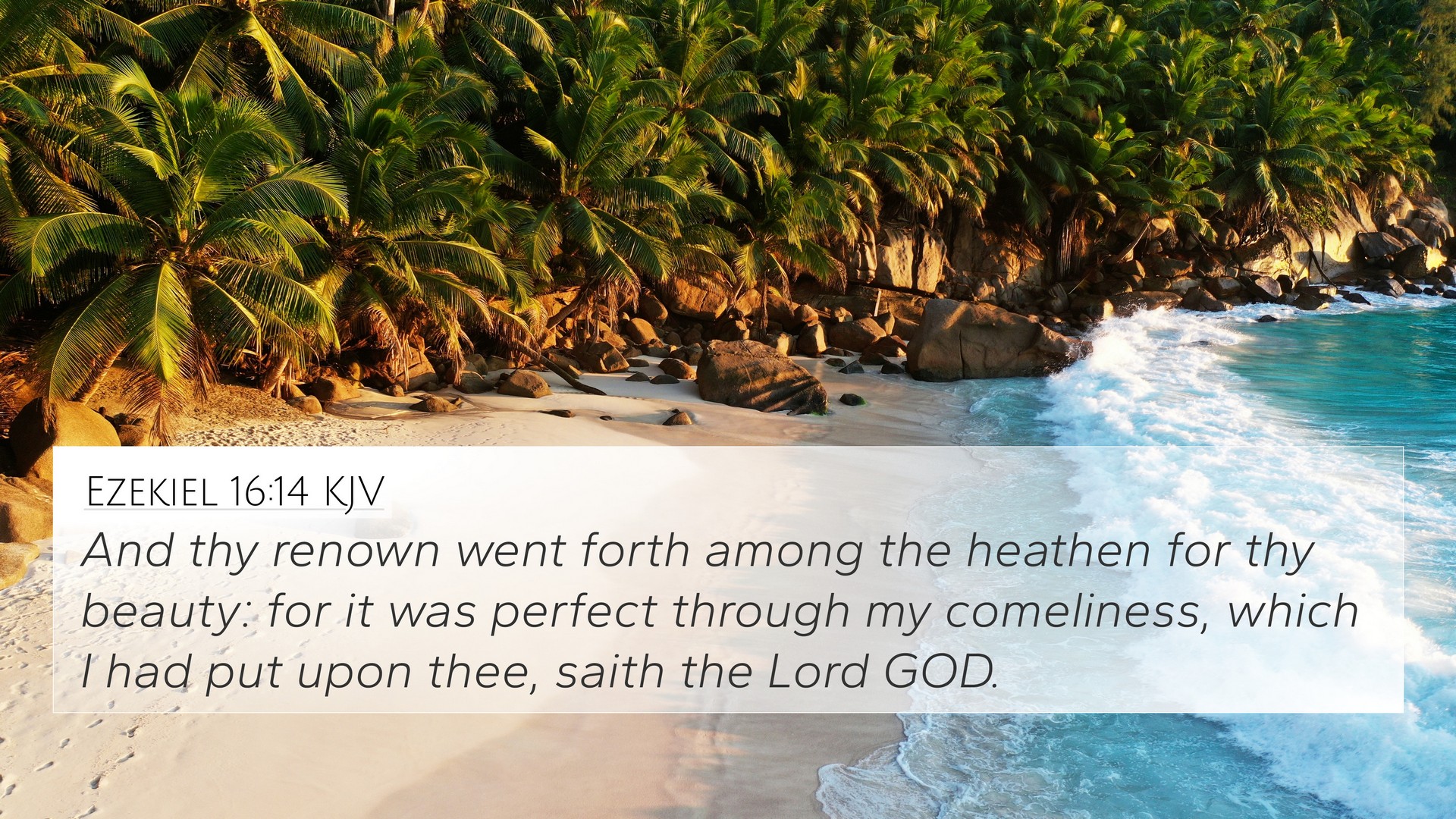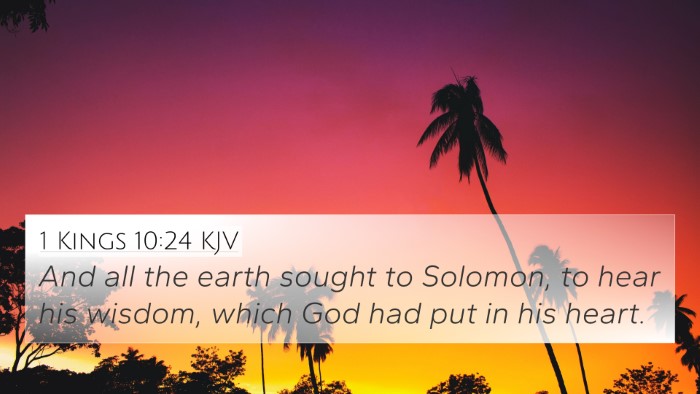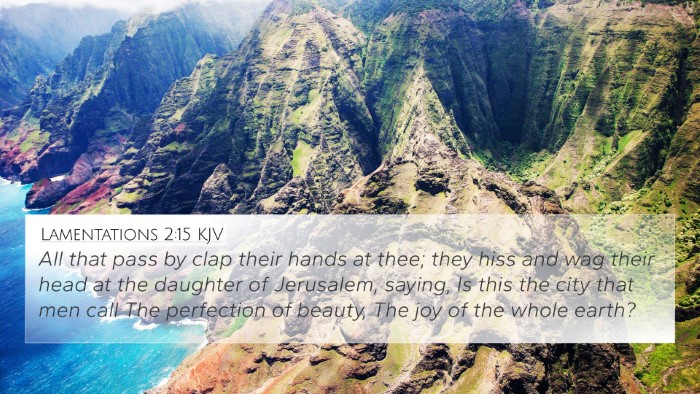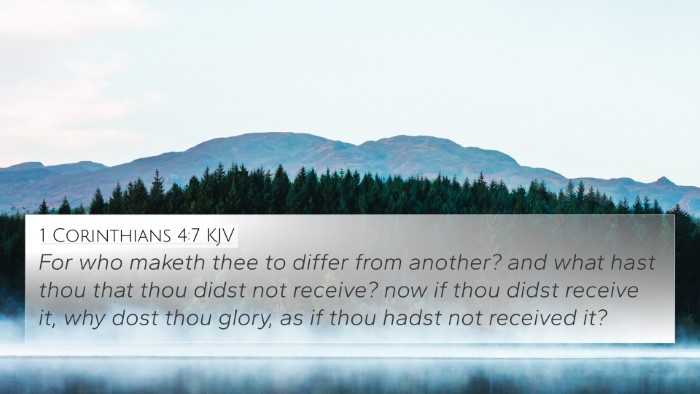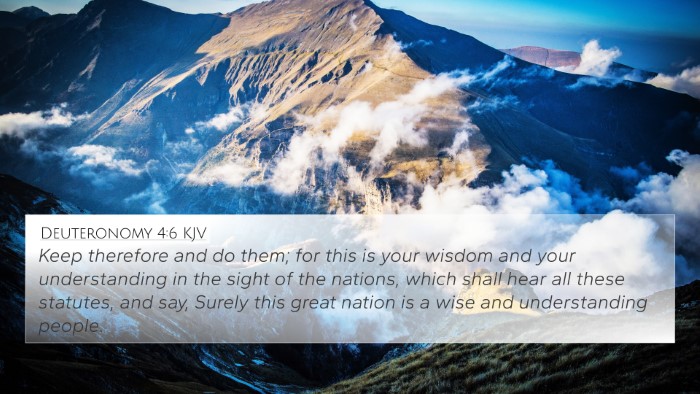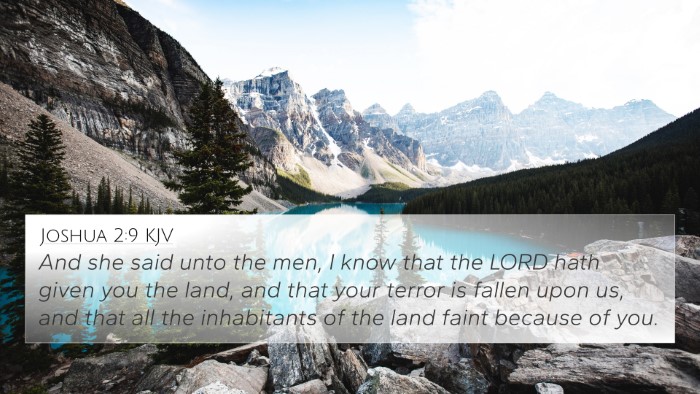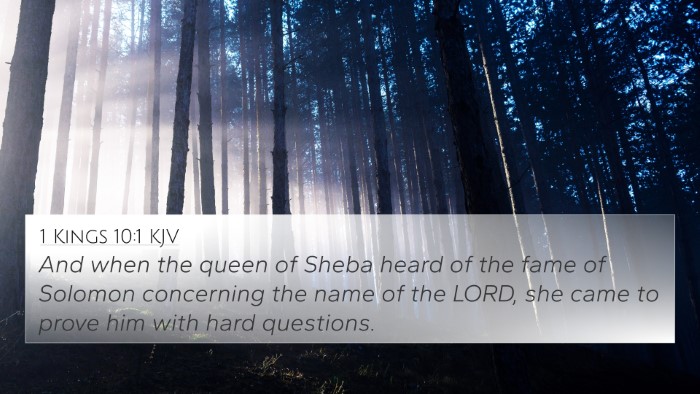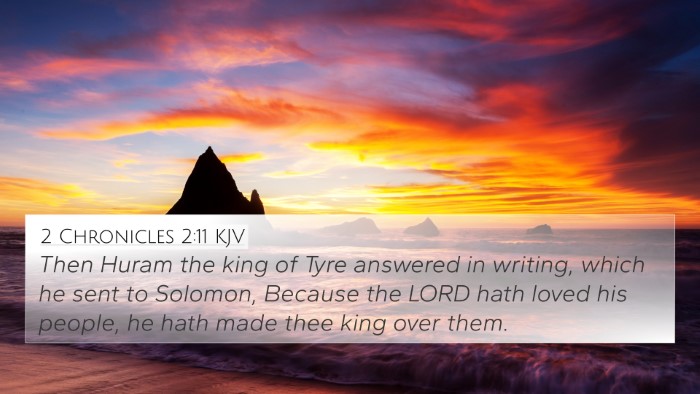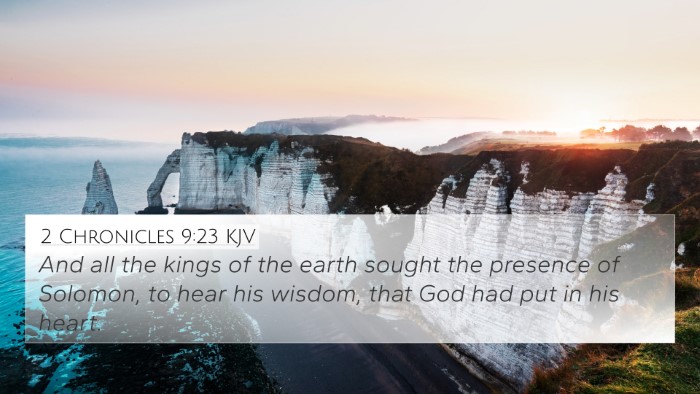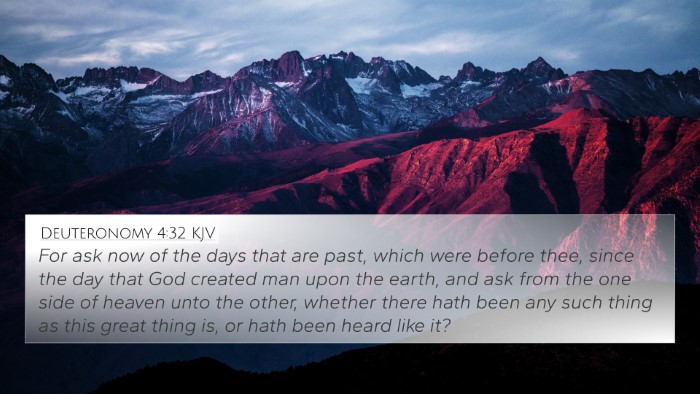Ezekiel 16:14 - Summary and Interpretation
Bible Verse: Ezekiel 16:14 - "And thy renown went forth among the heathen for thy beauty: for it was perfect through my comeliness, which I had put upon thee, saith the Lord GOD."
The verse Ezekiel 16:14 presents a powerful metaphorical narrative portraying Jerusalem as a woman who was once beautiful and favored by God. This beauty is seen as a gift from God, signifying His grace and favor upon His people.
Meaning and Insights
This verse emphasizes several key themes explored through the historical and spiritual context offered by esteemed public domain commentaries such as Matthew Henry, Albert Barnes, and Adam Clarke.
-
Divine Favor and Beauty:
Commentators like Matthew Henry highlight that the beauty attributed to Jerusalem symbolizes the glory of the people of Israel and their elevated status among the nations due to God's blessings. It reflects that their righteousness and adherence to God's commands made them appear beautiful in the eyes of others.
-
The Source of Beauty:
Albert Barnes notes that the beauty referred to in this verse is not inherent but comes from God’s grace. It emphasizes that true beauty and worth come from divine favor rather than personal merit, linking closely with the theological significance of grace in the Christian faith.
-
Public Recognition:
The mention of beauty spreading among the heathen signifies how nations observed the favor of God upon Israel. Adam Clarke elaborates that this is an acknowledgment of the influence that divinely favored individuals or nations have upon the world.
-
Judgment and Responsibility:
This verse is part of a larger passage where God outlines the penalties for Israel's infidelity. As beauty can lead to pride, Clarke suggests that Israel misused their favor, which brings about divine judgment, further portraying a lesson on the responsibility that comes with blessings.
-
Covenantal Significance:
This indicates Israel's special relationship with God. The beauty is a manifestation of the covenant and presents the “comeliness” of God’s law and presence among them, which should lead to their reflection of divine attributes.
-
Thematic Connections:
This theme of beauty and grace leads to broader discussions in scripture about the nature of God's relationship with His people. It resonates with verses like Psalm 45:11 and 1 Peter 2:9, which speak of God's selection and adornment of His people.
Cross-References
This verse can be understood more deeply when compared with the following Bible verses:
- Isaiah 61:10: "I will greatly rejoice in the LORD, my soul shall be joyful in my God; for he hath clothed me with the garments of salvation, he hath covered me with the robe of righteousness..."
- Jeremiah 2:32: "Can a maid forget her ornaments, or a bride her attire? Yet my people have forgotten me days without number."
- Psalms 90:17: "And let the beauty of the Lord our God be upon us: and establish thou the work of our hands upon us; yea, the work of our hands establish thou it."
- Ephesians 2:10: "For we are his workmanship, created in Christ Jesus unto good works, which God hath before ordained that we should walk in them."
- Matthew 5:16: "Let your light so shine before men, that they may see your good works, and glorify your Father which is in heaven."
- 1 Corinthians 1:27-29: "But God hath chosen the foolish things of the world to confound the wise; and God hath chosen the weak things of the world to confound the things which are mighty..."
- 2 Corinthians 5:17: "Therefore if any man be in Christ, he is a new creature: old things are passed away; behold, all things are become new."
Conclusion
In summary, Ezekiel 16:14 represents profound themes of divine beauty and grace, highlighting the relationship between God and Israel. This relationship embodies responsibilities tied to the blessings received. By exploring this verse through various commentaries and cross-references, one gains a nuanced understanding of its theological implications and how it connects with other scripture.
